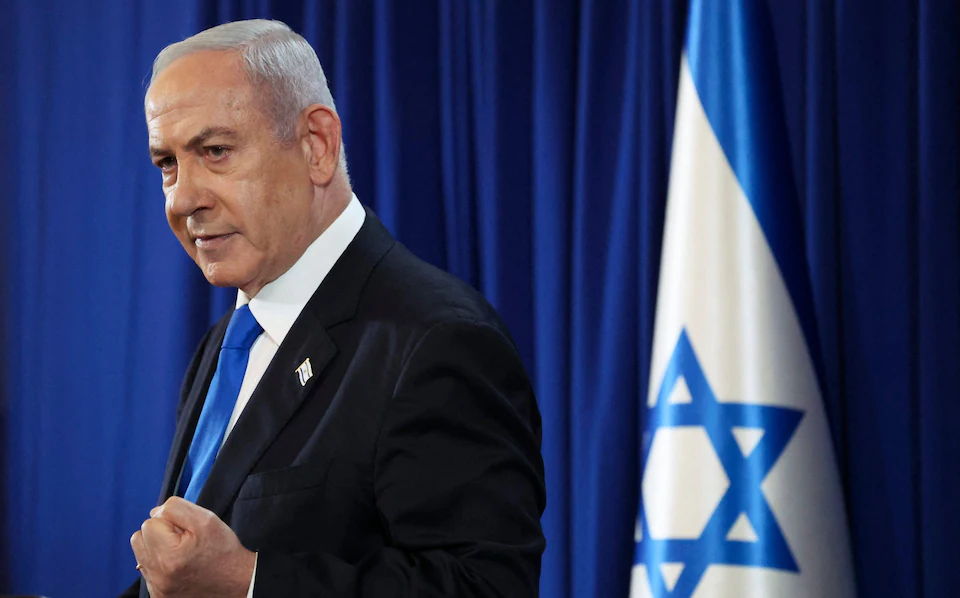
It may come to nothing, of course, but if a deal is done over the next few days, credit for getting it over the line should go to Donald Trump.
His warning of “all hell breaking loose” if an agreement was not reached by the time of his inauguration has concentrated minds across the region, particularly in the Israeli government and wider defence establishment.
Mr Trump’s detractors characterise him a dotard and perhaps, like Biden, he is, but his unpredictability and ambiguity are – for the moment at least – packing real punch.
Could Iran’s nuclear facilities be taken out if Tehran fails to bring its proxies in Gaza to heel? Yes, they could.
Might Hamas’s political leaders be killed in their beds in Qatar and Turkey if the terrorist group continues to hold hostages past the January 20 deadline? Absolutely.
And could Israel find itself out in the cold and subject to a US arms embargo if it fails to step up? Yes again – because with Mr Trump in the White House anything is possible.
“All hell will break out”, the president-elect repeated when pushed to expand on his Middle East policy at a press conference in Florida last week. “It will not be good for Hamas and it will not be good – frankly – for anyone”.

Mr Biden’s man in the region, US National Security Adviser Jake Sullivan, dismissed the power of Trump’s threat insofar as it relates to Hamas.
“If you’re a Hamas fighter sitting in Gaza, I think it would be fair to say that you have been seeing hell rain down on you for [15] months,” Mr Sullivan said in an interview with Bloomberg.
“The amount of firepower and military pressure brought to bear on Hamas has been pretty dramatic”.
For Israel, which scuppered the last major push for a ceasefire in June, the Trump threat and deadline may have more purchase.
The President elect and Israel’s Benjamin Netanyahu have history – and it is not all good.
Most significantly, perhaps, Mr Netanyahu is blamed for pulling out of the assassination of the Islamic Revolutionary Guard Corps (IRGC) leader Qassem Soleimani at the eleventh hour in January 2020, leaving the then US President to go it alone.
“Israel was going to do this with us, and it was being planned and working on it for months,” Mr Trump recounted just a few days after the Oct 7 attack. “We had everything all set to go, and the night before it happened, I got a call that Israel will not be participating in this attack.”
“I’ll never forget that Bibi Netanyahu let us down,” he added.
Mr Trump has also promised his base that he will end the conflict in the Middle East, or at least US involvement in it.
“I’m not going to start wars, I’m going to stop wars,” he told the nation in his victory speech in November.
His “first buddy”, the billionaire Elon Musk, has also been critical of Israel’s strategy in Gaza, arguing initially that only “conspicuous acts of kindness” by Israel towards the people of Gaza were likely to ultimately thwart Hamas.
These are all good reasons for Mr Netanyahu to be making the right noises now with just seven days left until Mr Trump’s inauguration.
But on the other hand no one should doubt the domestic political pressures the Israeli leader faces, nor his seemingly superhuman ability for wriggling out of agreements at the last moment and blaming others.

On Monday, Israel’s far-right Finance Minister Bezalel Smotrich described the proposed ceasefire and hostage exchange as a “catastrophe for the state of Israel’s national security” and said he would not support it.
He would “not be part of a surrender deal that will allow the release of terrorists, stop the war and the squandered achievements that were paid for with much blood, and the abandonment of many hostages,” he said.
“This is the time to continue with all our strength, to conquer and purify the whole strip, to finally take from the hands of Hamas their rule over humanitarian aid and to open the gates of hell on Gaza until the definitive surrender of Hamas and the return of all hostages.”
It does not help Mr Netanyahu domestically that the deal on the table today is essentially the same “comprehensive” deal proposed by Mr Biden on live TV back in May.
This involves not only a full hostage exchange, but a “permanent end to hostilities”, withdrawal of Israeli troops, a new Palestinian run administration and a major reconstruction plan for the war-torn territory.
As Mr Biden put it back in May: It is a deal “that brings all the hostages home, ensures Israel’s security, creates a better day after in Gaza without Hamas in power, and sets the stage for a political settlement that provides a better future for Israelis and Palestinians alike”.
For the past few months Mr Netanyahu has been trying agree a much more limited deal but failed.
So the question now arises: Can he now grasp the nettle and sell the real thing to his coalition allies, or might his own survival prospects look better if – once again – he leads the US up the garden path only to reverse ferret at the last moment.
You would be brave to place money on it either way but to cross Mr Biden is one thing. To make enemies of Mr Trump on the eve of his inauguration is quite another.
Article: The Telegraph







